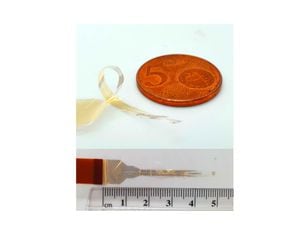Labour anti-Semitism row deepens as watchdog says party ‘may have discriminated’
The Equality and Human Rights Commission is considering whether to launch a formal investigation.

Labour could face enforcement action from the Equality and Human Rights Commission over complaints about anti-Semitism in the party.
The equality watchdog said it believes Labour may have “unlawfully discriminated against people because of their ethnicity and religious beliefs”.
It is now contacting Jeremy Corbyn’s party to set out its concerns and request a response. If that response is found to be unsatisfactory, the EHRC could launch a formal investigation.
Labour said it will co-operate fully with the Commission, but said the party rejects “completely” any suggestion that it has acted unlawfully.
Deputy leader Tom Watson said he was “deeply saddened that the EHRC feels there is sufficient evidence to investigate Labour for breaches of discrimination law”.
He said he would contact general secretary Jennie Formby to ask for all relevant files and data to be retained “so that investigators can form a clear picture of the processes and culture around Labour’s response to anti-Semitism within our ranks”.
The development comes after a string of complaints of anti-Jewish comments by Labour members, and follows the resignation of prominent Jewish MP Luciana Berger from the party, which she said had become “institutionally anti-Semitic”.
In a statement, an EHRC spokesman said: “Having received a number of complaints regarding anti-Semitism in the Labour Party, we believe Labour may have unlawfully discriminated against people because of their ethnicity and religious beliefs.
“Our concerns are sufficient for us to consider using our statutory enforcement powers.
“As set out in our enforcement policy, we are now engaging with the Labour Party to give them an opportunity to respond.”
A Labour spokesman said: “We completely reject any suggestion the party has acted unlawfully and will be co-operating fully with the EHRC.
“Labour is fully committed to the support, defence and celebration of the Jewish community and its organisations.
“Anti-Semitism complaints received since April 2018 relate to about 0.1% of our membership, but one anti-Semite in our party is one too many. We are determined to tackle anti-Semitism and root it out of our party.”
It is understood that Labour has not yet been given details of the allegations received by the Commission.
Once the EHRC’s formal letter is delivered, the party will have 14 days to respond to the concerns raised.
Depending on the response, the Commission can take enforcement action ranging from a voluntary agreement with the party to a full-blown investigation.
If a formal investigation was launched, the EHRC would request interviews with key figures in the party and have the power to demand access to correspondence, emails and other information to determine how Labour dealt with allegations of anti-Semitic discrimination.
The body has no powers to fine or prosecute organisations following investigation, but can make recommendations or draw up a legally-enforceable action plan.
Labour MP John Mann, who chairs the All-Party Parliamentary Group Against Anti-Semitism, predicted the EHRC’s move would eventually lead to resignations of senior party figures.
“Obviously there will be resignations from those in power as this fully unfolds,” said the Bassetlaw MP. “Everyone should let the EHRC do its job (as the Labour Government legislation empowering it requires).”
Stoke-on-Trent North MP Ruth Smeeth, who has herself been subjected to anti-Semitic abuse, said the development was “a devastating indictment on the Labour Party” marking “another dark day in the history of our party”.
“Decent members will be horrified that we have got into this position,” said Ms Smeeth. “However, after three years of appalling incidents of anti-Semitism from a small number of racists within our ranks which the leadership failed to tackle, this is a necessary step.”
The EHRC action comes in response to complaints from a number of organisations and individuals, including the Campaign Against Anti-Semitism and the Jewish Labour Movement.
CAA chairman Gideon Falter, said: “The Labour Party has repeatedly failed to address its own anti-Semitism problem, resulting in MPs and members abandoning the party.
“It is a sad indictment that the once great anti-racist Labour Party is now being investigated by the equality and human rights regulator it established just a decade ago.”
Mr Falter said the Jewish community had “gone to every conceivable length” to persuade Mr Corbyn, Labour general secretary Jennie Formby and the party’s ruling National Executive Committee to act, but had been “persistently rebuffed”.
Hundreds of JLM members voted at meetings in London and Manchester on Wednesday to retain its 99-year-old affiliation with the party, but gave the leadership a month to act on their concerns.
A JLM spokesman said: “After years of anti-Jewish racism experienced by our members, and a long pattern of denial, obfuscation and inaction by those with the power and ability to do something about it, we felt there was little choice but to secure a fully independent inquiry, not encumbered by corrupted internal practices.
“Everything that has happened in the months since our referral supports our view that the Labour Party is now institutionally anti-Semitic.”
The president of the Board of Deputies of British Jews, Marie van der Zyl, said: “This proposed independent investigation confirms what the Jewish community has known for a long time – that the Labour leadership has a problem with anti-Jewish racism which it is unable or unwilling to solve.
“We welcome this development and hope it will now focus minds on the extent and depth of anti-Semitism infecting the Labour movement.”
Labour MP Neil Coyle, who is a regular critic of Mr Corbyn, described the EHRC action as “absolutely shocking”, adding: “We do not live in normal times but this would generate the strongest of responses under usual leadership.”





